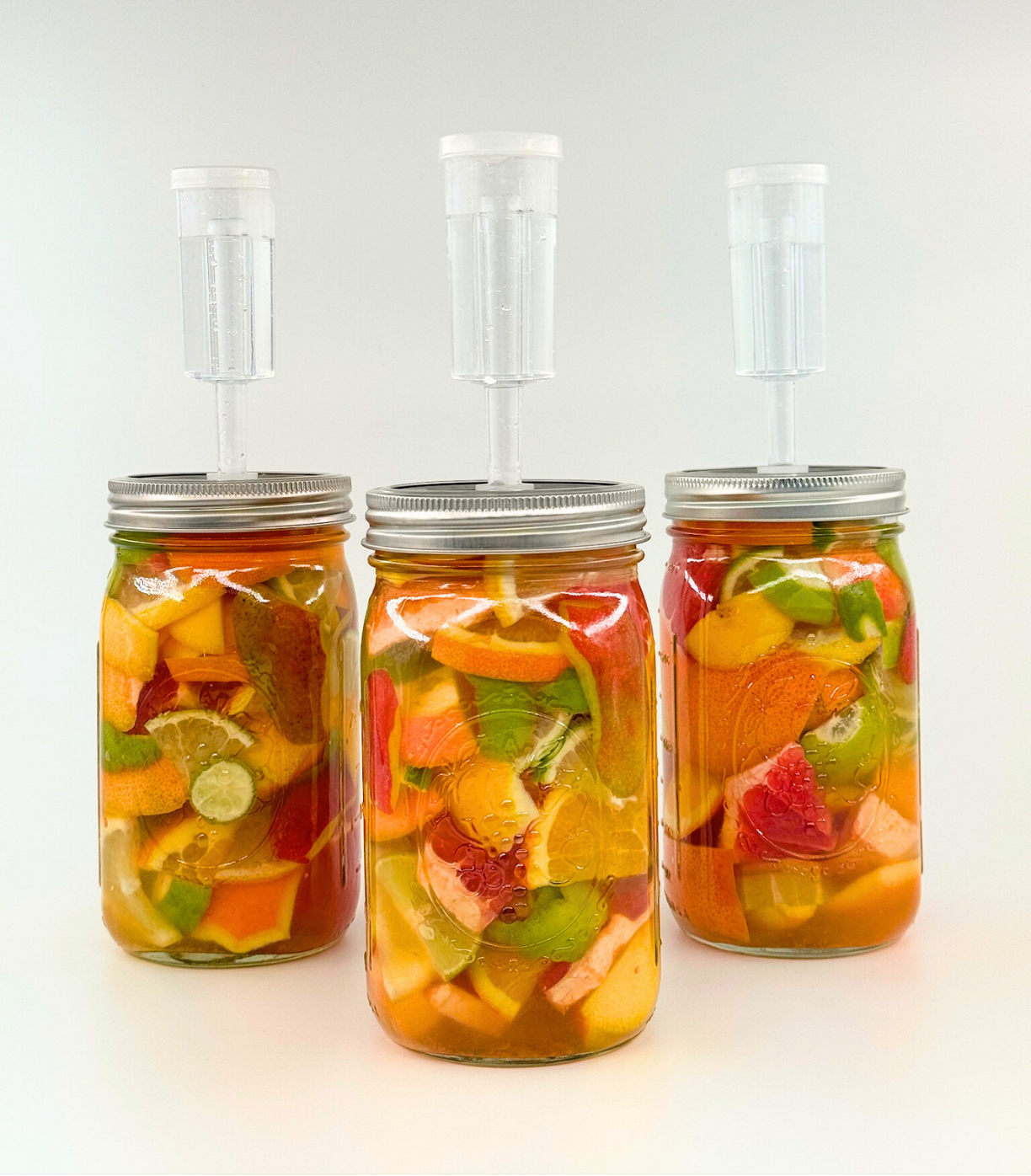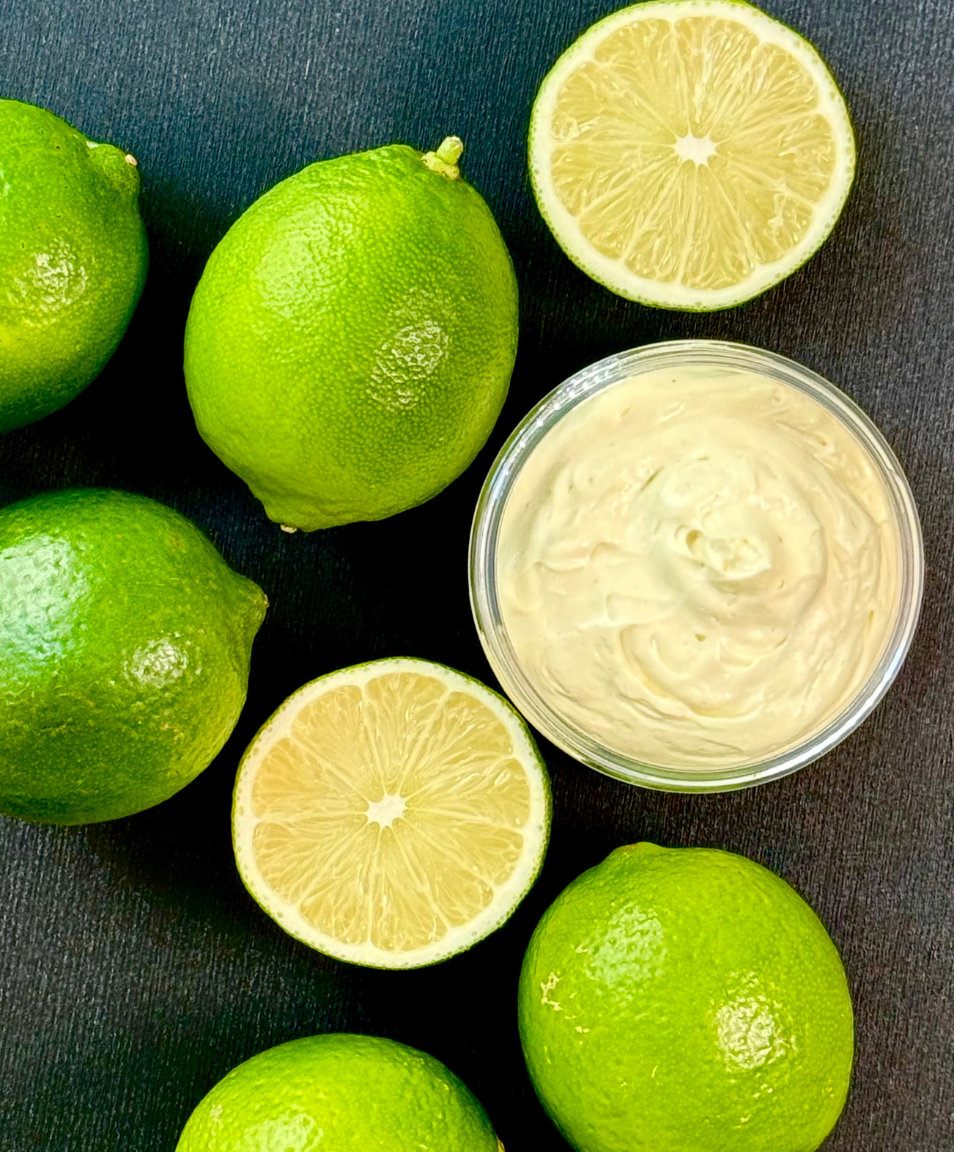Last Updated: January 16, 2025
There’s a lot to love about topical vitamin C. This potent antioxidant is a natural defender against environmental stressors, with a signature and virtually unrivaled ability to brighten the complexion in the most flattering way. And that’s just to start! Skincare junkies know and absolutely adore vitamin C, and the most clued-in know that the only way to improve on it is with fermentation. The very same process that creates kombucha and kimchi works absolute wonders with skincare ingredients, but let’s get hyper-specific. Here’s how fermentation supercharges topical vitamin C for great skin.
The Skin Benefits of Vitamin C
Before we dive into the absolute magic that is fermentation, let’s briefly review the many, many benefits of vitamin C for your skin.
-
It’s a powerhouse antioxidant. As one of the most powerful antioxidants in the skin, Vitamin C works to protect and nourish your skin at the cellular level. It neutralizes free radicals caused by exposure to UV rays and pollution, helping to maintain skin health and resilience. By reducing oxidative stress, vitamin C supports an even, radiant complexion while promoting a strong, well-balanced skin barrier. What’s more, it plays a vital role in keeping skin vibrant, smooth, and naturally luminous—making it an essential ingredient for overall skin wellness.
-
It boosts collagen. Vitamin C stimulates collagen production, a critical protein that maintains the skin’s firmness and elasticity. By supporting collagen synthesis, it helps reduce the appearance of fine lines, strengthens the dermis.
-
It reduces hyperpigmentation. Freckles, age spots or patches of darker skin have one thing in common—too much melanin production, which can be triggered by all kinds of things. But vitamin C decreases melanin formation, which reduces hyperpigmentation for a more even complexion.
-
It plays nicely with Vitamin E. Vitamin E is a fat-soluble vitamin that acts as an antioxidant—and it loves vitamin C. It’s found naturally in the oil on our skin, forming part of the acid mantle, a delicate layer that protects the skin. Vitamin C helps replenish vitamin E and together, the duo work to combat oxidative damage for healthier-looking skin.
Clearly, you want this stuff on your skin. But when you ferment it first, well, that’s when things get really good.
The Role of Fermentation in Skincare
If you’re familiar with fermentation only as it relates to food or alcohol, you’re missing out! Fermentation is a game changer for skincare. Essentially, the process of fermentation breaks down skincare ingredients into teeny tiny molecules that are easier for the skin to absorb. As they’re broken down, they’re also concentrated. That means fermented vitamin C is both more potent and more bioavailable, so its benefits are seriously amplified.
The fermentation process also infuses the finished product with nourishing amino acids, organic acids and skin-friendly compounds like B vitamins and omega-3 fatty acids. These nutrients hydrate and strengthen the skin barrier, so it can do its oh-so-important jobs—things like reducing the effects of inflammation and keeping baddies like bacteria, allergens, pollutants and chemicals out.
What’s more, fermentation creates probiotics, and your skin loves these guys. Probiotics are the happy, healthy bacteria that live and thrive on your skin (and in your gut). There are millions upon millions of probiotics in your skin’s microbiome, and keeping them balanced is non-negotiable for great skin. By using fermented skincare products, you’re literally nourishing all of this good bacteria for skin that’s truly healthy.
For a specific type of skincare product, fermentation is the secret sauce. Products that are derived entirely from natural ingredients are loaded with beneficial compounds, but they can be notoriously tricky to absorb. Fermenting these ingredients enhances their benefits while boosting their bioavailability—it’s the best of both worlds, literally. Here at Shimmer Chef, our proprietary Vitamin C Fermentation Technique turns a rotating crop of organic citrus peels into the most nutrient-dense, living concoction imaginable, and it’s all thanks to organic apple cider vinegar and a little old-fashioned patience (our process takes nine days!). We pair this microbial magic—our “Mother Sauce,” found in six of our nine products, including our Apple Cider Mignonette Vitamin C Accelerator Serum—with organic superfoods, plant butters and healthy oils, along with handpicked seeds and herbs, and that’s how we create our fresh plasters and balms. They’re entirely free of preservatives and synthetic ingredients, and all you need to enjoy their benefits and maintain their potency is to stash them in the fridge.
Wondering why we use citrus peels? It’s a great question! You already know that citrus fruits are a natural source of vitamin C. But it’s the peels that offer the highest concentration of natural vitamin C and its accompanying flavonoids. In fact, orange peels pack up to four times more vitamin C than the juice, delivering a potent antioxidant punch to protect, brighten and strengthen the skin barrier. Grapefruit peels, meanwhile, serve up a hefty dose of pectin—a prebiotic that’s essentially the food your microbiome feeds on—along with essential oils that deeply hydrate, protect, and rejuvenate the skin. By using citrus peels from oranges, lemons, limes and grapefruits in our fermentation process, we ensure that the finished product is brimming with concentrated vitamin C—and your skin drinks it up.
A Word to The Wise
Trends are the name of the game in the skincare world. From one week to the next, it seems like there’s always something new and improved to solve every skincare woe. Fermented skincare itself began as a K-beauty trend, and a lot of brands jumped on the bandwagon, eager to cash in on the clicks. But just because something is advertised one way doesn’t mean it’s not loaded with sneaky ingredients that do more harm than good (get the lowdown on how and why to detox your skincare routine). In the interest of giving your skin what it needs—and sparing it from all the junk that it doesn’t—less is usually more. Look for labels that actually mean something, like the Made Safe certification from the Environmental Working Group. It’s an indication that a product jumped through a series of very rigorous hoops to meet high standards for safety, sustainability and superiority. Products that earn this seal of approval are free from more than 6,500 banned and restricted substances, and they’ve proven that their manufacturing practices meet similar high standards. Without it, you’re trusting a brand’s claims about its fermented skincare products—and that’s a little scary.
Side note: Shimmer Chef’s curated line of raw, organic skin, scalp and hair care products are indeed Made Safe certified. Fermentation has been our approach from the beginning, not because it was trendy, but because we understood that it’s the best way to create potent, effective products that truly support the skin the way it needs to be supported. It’s really as simple as that.
The Takeaway
It’s not an exaggeration to say that two of nature’s greatest gifts for our skin are Vitamin C and fermentation. Together, done right, it’s a combination that truly benefits the skin—delivering nutrients that support the skin barrier, balance the acid mantle and defend against environmental aggressors. Dry, oily, sensitized, mature and combination skin alike benefit from fermented vitamin C, and Shimmer Chef’s collection of living plasters and balms makes it easy.
Chef Jennifer Sanford, the visionary behind Shimmer Chef, fuses her talents as a Health Supportive Culinary Arts Chef and licensed esthetician to develop formulas that radically transform your skin, scalp and hair. Jennifer brings a holistic approach to beauty and wellness, drawing on the wisdom of Mexican Folk Medicine passed down through her family, as well as studies of the ancient art of Ayurveda through her yoga and meditation certifications.








